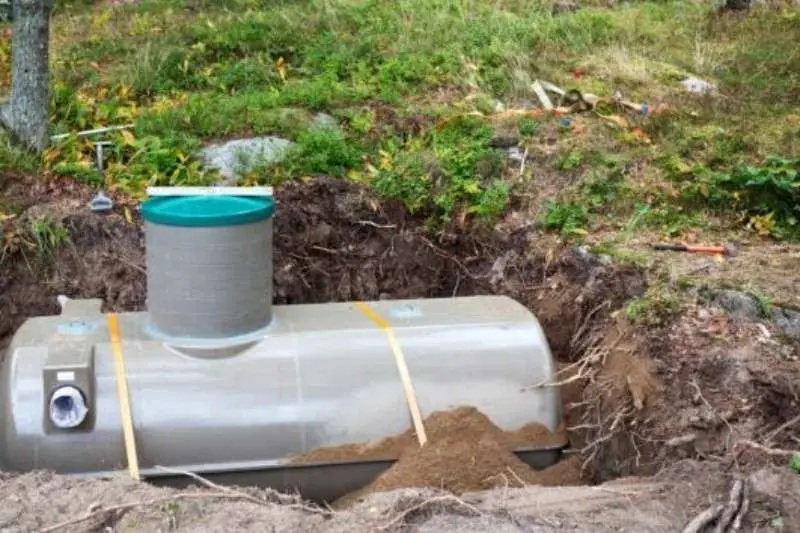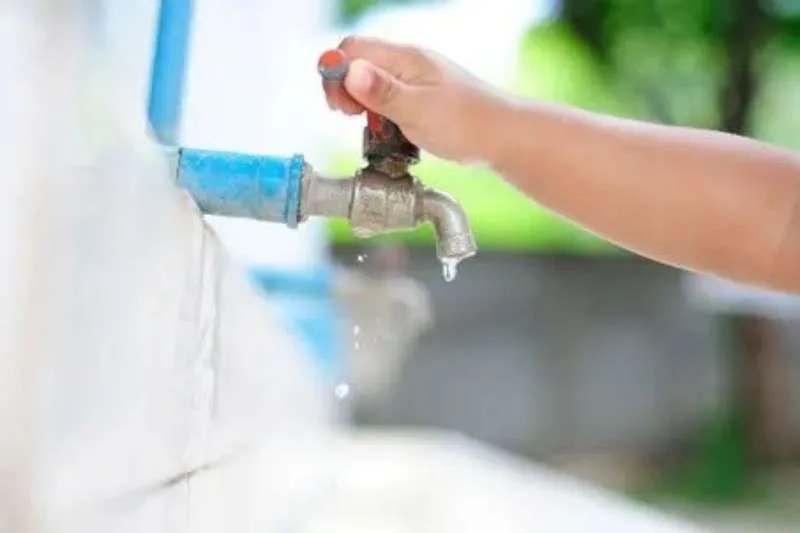As an owner of a septic system, it is important to be aware of the critical role that water plays in keeping your system running smoothly. Water ensures you can use the toilet and other plumbing fixtures as needed; it also helps keep your septic tank emptied when necessary and free from clogs, plumbing leaks, or backups.
With that being said, there are several ways to help save on water usage while still meeting your septic needs – read on for tips to save money by saving unintentional water usage while protecting the health of your septic systems.
Introduction to water conservation for septic system owners
Septic system owners are all too familiar with the importance of proper maintenance and care for their septic systems. Water conservation is essential to maintaining a healthy septic system, so it’s important to know how your average household’s water usage impacts your septic system’s health. Reducing the water used in your household can save money and ensure your septic system stays healthy.
Efficient use of water in the bathroom
Septic system owners must know how water can be conserved in the home’s water well. The most effective way to save water is to switch out any toilets or showerheads with high-flow models for more efficient low-flow models. Low-flow toilets and showerheads use less water than their higher-flow counterparts, conserving up to 40% of the total water used in a home. In addition, households should limit the length of showers and avoid baths that can sometimes use over 100 gallons of water for one session.
Lastly, checking for leaks or drips in faucets or fixtures is important. A small drip from a leaky faucet can add up to hundreds of gallons of wasted water over time. These simple steps will help households conserve water and ensure their septic system works at its best with all the wastewater.
Water-saving strategies in the kitchen
Water-saving strategies in the kitchen can help septic system owners reduce water usage. For example, using a dishwasher instead of hand-washing dishes can save up to 20 gallons per load! When using the dishwasher, ensure to only run it when it is full and consider installing a faucet aerator to further reduce water usage. Avoid frequently pre-rinsing when washing dishes, or using the garbage disposal, as these can significantly increase water use for septic owners.
Using a dishwasher instead of hand-washing dishes
Septic system owners should consider water-saving tips to ensure their system works properly. One of the easiest ways to save water is using a dishwasher instead of hand-washing dishes. Running only full loads of laundry in the dishwasher can also help conserve water and install water-saving devices such as a faucet aerator. A faucet aerator is a small device that attaches to the end of your faucet and mixes air with water, creating a spray. This helps reduce water consumption without reducing pressure.
Another great tip is to install low-flow showerheads in your bathrooms. Low-flow showerheads use less than 2.5 gallons of water per minute compared to standard showerheads, which use about five gallons per minute. Low-flow showerheads can reduce water usage by more than 50%, translating into dramatic savings for septic system owners.
Finally, try installing a rain barrel or cistern. These devices collect runoff from your roof and store it for later use in gardening or other outdoor activities. This can help reduce the water in your septic system and protect it from excessive use, as less water will be needed to flush solids out of your tank and adequately treat wastewater.
These easy tips can significantly reduce your septic system’s water used for human waste and help extend its life. Additionally, conserving water for food waste is important for protecting the environment. So start making small changes today and help save our planet through proper septic maintenance revolve.
Reducing water usage in the laundry room

Using a front-loading washer, or other more water-efficient models of washers, can reduce your household’s water usage while still getting the job done. Additionally, you could consider washing with shorter cycles and using cold water whenever possible. Reducing the number of loads is also an efficient way to save on water consumption.
Checking for and fixing leaks
Leaking fixtures can be a major source of water waste in the home. Checking for and fixing plumbing leaks is crucial to avoiding water waste through leakage. You should check all faucets, toilets, showerheads, and other plumbing fixtures for any signs of leaks or drips. Call a professional if you cannot fix the leak alone.
Using high-efficiency washing machines
Septic system owners should use water-saving appliances and techniques to practice water conservation. High-efficiency washing machines can save up to 50 percent of the household’s water consumption. Additionally, washing full loads of laundry instead of smaller loads can reduce the water used in a single cycle. To conserve water, reuse rinse water for the next wash or extra rinse cycle. Ensure the rinse water is not too soapy or contaminated before reusing it.
Implementing outdoor water conservation practices
Septic system owners can conserve water in many ways, both indoors and outdoors. For outdoor water conservation, installing proper drainage systems that ensure rainwater does not flow directly into the septic tank or drain field is important. Outdoor irrigation should be directed away from the septic system as well. Other tips for outdoor water conservation include:
1. Implement outdoor water conservation practices, such as using a broom or rake instead of a hose to clean decks, driveways, and sidewalks; collect rainwater in rain barrels for garden irrigation; and mulch to retain soil moisture and reduce evaporation; and planting drought-resistant native vegetation.
2. Utilizing rain barrels to store rainwater for garden irrigation. Rain barrels can be connected to downspouts and roof drains, or trash can be placed in areas where they will capture runoff from the roof.
3. Water plants during cooler hours, such as early morning or late evening, when less evaporation is due to lower temperatures.
4. Installing a drip irrigation system is a more water-efficient model for delivering water directly to the root systems of plants and requires less water than traditional sprinkler systems.
By following these tips for conserving water outdoors, septic system owners can help ensure their systems function properly and reduce the risk of overloading or contamination of their septic tanks.
Regularly monitoring water usage.
One of the most important things you can do as a septic system owner is to monitor your water usage. This helps ensure that you’re not using too much water, which could potentially damage your septic tank or leach field. To effectively track your water usage, monitor your monthly water bill and look for any spikes in water consumption.
If you notice any sudden increases in mindless water usage, investigate the cause of the spike and address it to ensure you’re not wasting water or putting additional strain on your septic system.
Maintain your septic tank and leach field regularly.

Maintaining your septic tank and leach field is essential to ensure they function properly. Make sure to have your septic tank and system professionally serviced at least every three years—or more frequently if you’ve had any sudden changes in water usage or noticed any signs of damage.
Installing low-flow fixtures such as toilets and faucets is another great way to reduce water usage and ensure your septic system stays healthy. Low-flow fixtures use less water than standard models, which saves you money on your water bill and helps protect the environment sump pumps.
Finally, it’s important to regularly inspect your pipes for leaks. If a leak does occur, make sure to get it fixed as soon as possible. Leaks can waste a lot of water and strain your septic system unnecessarily.
FAQs
Why is water conservation important for septic system owners?
Water conservation is important for septic system owners because it helps maintain the health and function of their septic systems. By reducing water usage, septic system owners can reduce the risk of overloading or contamination of their septic tanks and save money on their water bills.
How much water can I save by implementing these tips?
The water you can save will depend on how much you currently have water flow and use and the water conservation practices you implement for most septic owners. However, following these tips for conserving water outdoors can help septic system owners reduce their water usage by as much as 30%.
How does excessive water usage impact my septic system?
Excessive water usage can strain a septic system and lead to damage, such as an overloaded tank or leach field. This can lead to costly repairs or even complete the average household septic system or replacement in some cases. In addition to saving water, excessive water usage increases the risk of contamination of your septic system, which can be hazardous to your health and the environment.
How can I teach my family members to conserve water?
Teaching your family members to conserve water is easy with the right tools and resources. Start practicing water conservation by discussing why water conservation is important practicing water conservation, for septic system owners and how everyone can minimize their water usage.
Are there any incentives for installing water-saving devices in my home?
Yes, several incentives are available for installing water-saving devices in your home. Many local governments offer tax credits or rebates for low-flow toilets and faucets.
Can water-saving practices help extend the life of my septic system?
Yes, water-saving practices can help extend the life of your septic system. By reducing water usage and properly caring for your system, you can help ensure it functions properly and reduce all the system’s components’ risk of overloading or contamination. Regular maintenance will help keep your septic system in good condition and prevent costly repairs or replacements.
How do I know if my water-saving efforts are effective?
You can track your water usage to see if your water-saving efforts are effective. Monitor your monthly water bill and look for any spikes in water consumption. If you notice any sudden increases, investigate the cause of the spike and address it to ewater’sou’re not wasting water or putting additional strain on your septic system.
Are there any additional water-saving tips for households with septic systems?
Ordinate your household water usage activities with other household members. Have everyone in the house take shorter showers, do laundry and dishes only when full loads are ready, and wait until you have a full sink of dishes or clothes before running the dishwasher or washing machine.
Conclusion
In conclusion, it is clear from the above information that understanding septic systems is necessary for proper maintenance. This includes knowledge about water’s critical role in these systems and how much should be used to help keep proper septic maintenance requirements met. While conserving water should be a priority, there are still ways to meet proper septic care system requirements without overusing the resource.


